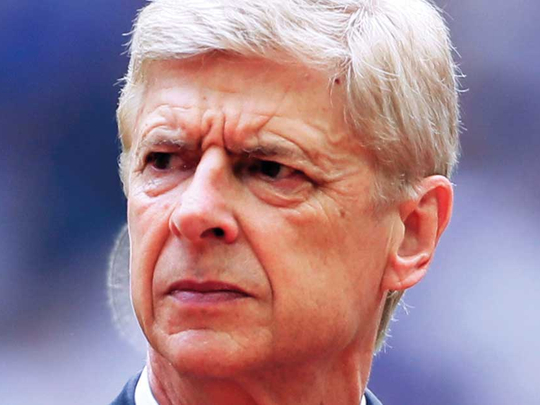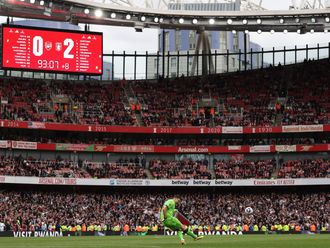
Arsene Wenger brought the curtain down on his 22-year reign at Arsenal on Sunday.
The game against Huddersfield was his 1,235th in charge, a record we will never see surpassed at the North London club.
He will leave behind countless memories — good and bad, a shed load of silverware and, of course, the ‘Invincibles’ of 2003-04 who went the entire Premier League season undefeated.
However, he will leave behind a far greater legacy for both Arsenal and English football in general.
He changed the shape of the Premier League and the way football was played in England forever.
The Frenchman arrived as an unknown, when chief executive David Dein brought him in from Japanese side Nagoya Grampus Eight to take over from Bruce Rioch in 1996.
Indeed, one headline in an English newspaper summed up his arrival as ‘Arsene Who’. We know his name across the globe now.
Prior to his arrival, English football was very, well, English.
You know: route-one football; pies, booze and nightclubs for players; and a we-know-better-because-we-are-English mentality to the way they behaved on and off the field.
Stan Collymore, Alan Shearer, Les Ferdinand were the big names in the Premier League – all very English.
Even Manchester United’s flair player Eric Cantona had turned from continental creation to convict when he attacked a fan as he left the field in the 1995 season – very stereotypically English.
Wenger inherited a squad of 31 that had only five non-British players in it (including the mighty Dennis Bergkamp, a man many wrongly think Wenger brought to Highbury).
By 1997-98, that number was up to 12. They also won the title that season.
Now, we know that buying foreign on its own is no fix-all solution, just look at the Middlesbrough side of 1996-97, who splurged millions on the likes of Emerson, Fabrizio Ravanelli, Branco and Gianluca Festa.
They were relegated on the final day of that season.
It was clear Wenger brought something else. And it is exactly that ‘something’ that is his legacy.
His players, used to a drinking culture and, in some cases drugs, were all placed on strict diets and training regimes, earning Wenger the nickname Le Professeur for his strict teachings.
He created a seismic shift in the game.
Other teams knew they had to change if they wanted to keep up, and those that didn’t, well… where are Nottingham Forest and Coventry City now?
He put in place the foundations that have led to such brilliant teams grace the Premier League and allow them to keep up with and surpass the best in continental Europe (hopefully Liverpool can do that again on May 26 in Kiev).
Yes, he may have become a victim of his own success in recent years as Arsenal slid down the hierarchy at the top of the Premier League and in Europe, but we would not be watching the likes of Jurgen Klopp’s Reds in the Champions League final against Real Madrid had it not been for Le Proffeseur and his teachings.
That is his true legacy in England.












